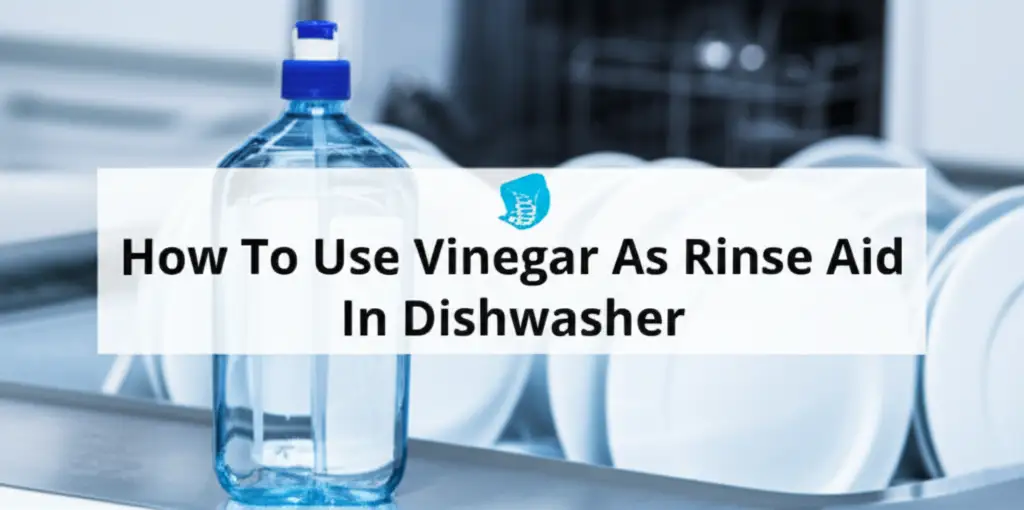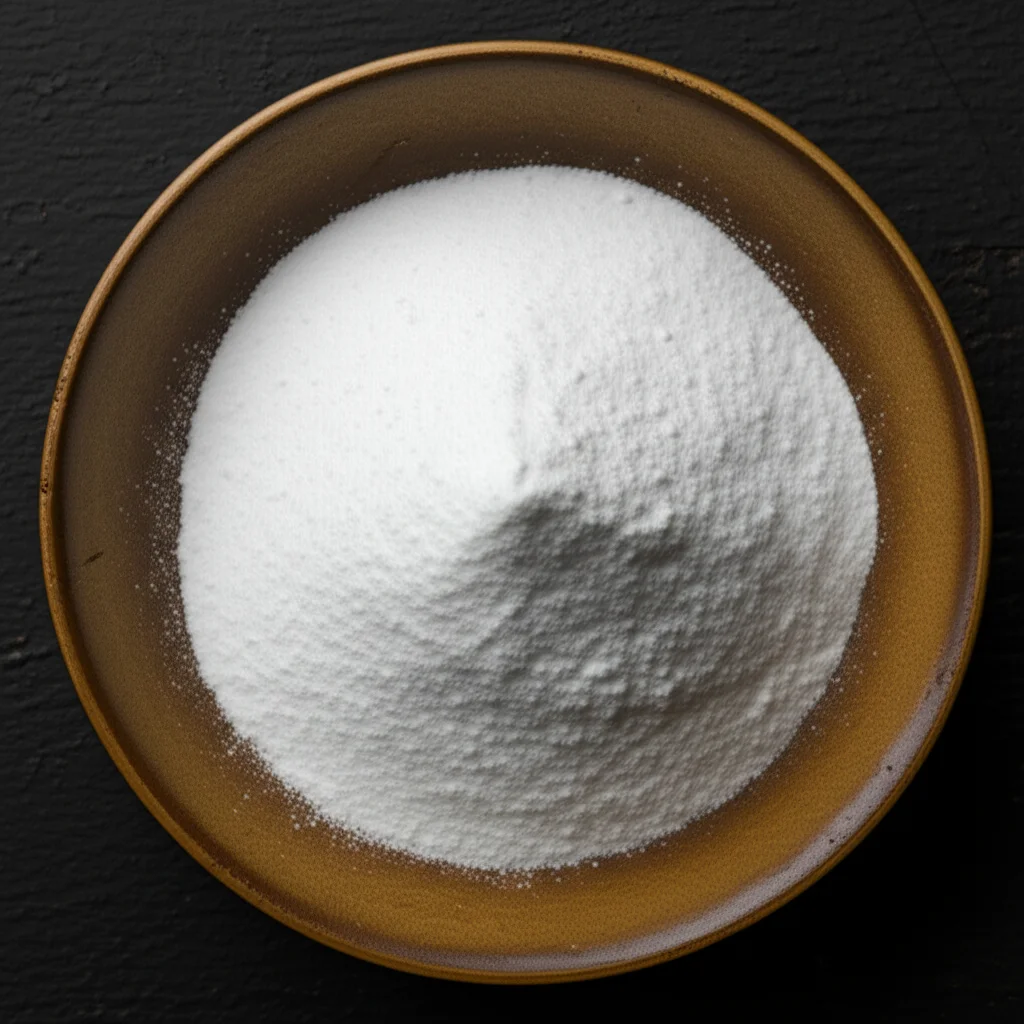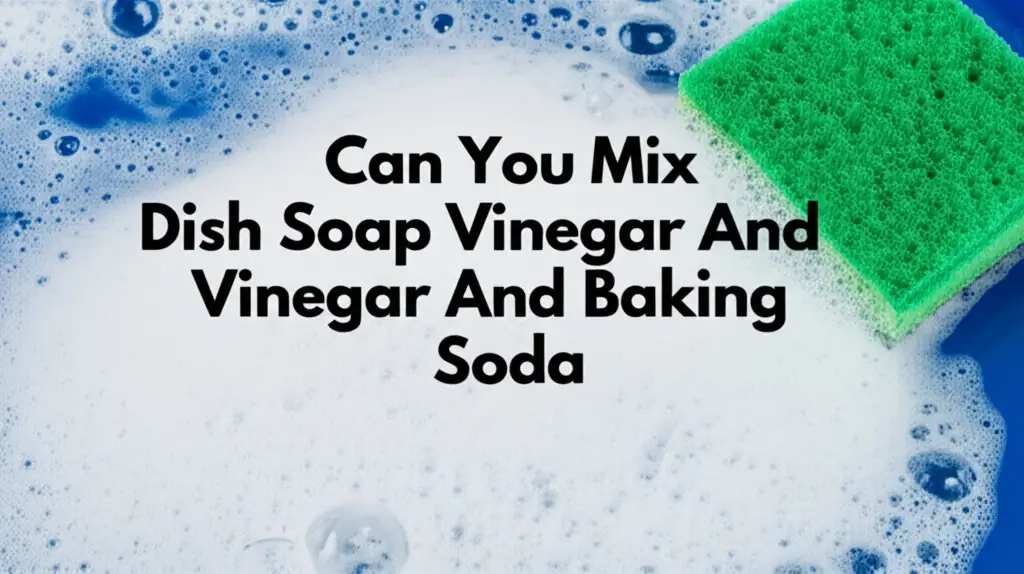· Todd Martin · Home Cleaning Tips · 15 min read
How To Use Vinegar As Rinse Aid In Dishwasher

How To Use Vinegar As Rinse Aid In Dishwasher
Do you ever pull dishes from your dishwasher only to find them covered in spots or a cloudy film? It is a common problem, especially if you have hard water. You might feel frustrated by water spots on your clean dishes. Many people turn to commercial rinse aids to solve this. However, there is a simple, natural, and budget-friendly solution: white vinegar.
Using vinegar as rinse aid in your dishwasher offers sparkling results without harsh chemicals. This guide will show you exactly how to incorporate this kitchen staple into your dishwashing routine. We will explore why vinegar works, how to use it safely, and common questions about its effectiveness. Prepare to say goodbye to streaks and hello to crystal-clear dishes.
Takeaway
Using white vinegar as a natural rinse aid in your dishwasher is simple and effective.
- Vinegar’s acidity neutralizes hard water minerals, preventing spots and film.
- You can add vinegar to the rinse aid dispenser or a small bowl on the top rack.
- It is a non-toxic, budget-friendly, and eco-friendly alternative to commercial products.
- Ensure you use distilled white vinegar for the best results and avoid mixing it directly with bleach.
Clear, Concise Answer
You can use vinegar as a rinse aid in your dishwasher by filling the rinse aid dispenser with distilled white vinegar or placing a small, open cup of vinegar on the top rack. This method helps prevent water spots and streaks, leaving dishes cleaner, especially in hard water areas.
The Science Behind Vinegar as a Dishwasher Rinse Aid
Have you ever wondered why your dishes come out with white spots after washing? This usually happens because of hard water. Hard water contains high levels of minerals like calcium and magnesium. When these minerals dry on your dishes, they leave behind visible residue. This residue makes your glassware look cloudy and your cutlery spotted.
Vinegar, specifically distilled white vinegar, is an acidic liquid. Its main component is acetic acid. When you introduce this acid into the dishwasher’s rinse cycle, it reacts with the alkaline mineral deposits. This chemical reaction breaks down the mineral bonds. It prevents the minerals from sticking to your dishes as they dry.
Think of it this way: the vinegar dissolves the hard water film. This means water can sheet off your dishes more easily. When water sheets off rather than clinging in droplets, fewer spots remain. The result is a clean, streak-free shine. This natural process makes vinegar an effective, safe alternative to commercial rinse aid products. Using vinegar can truly transform your dishwashing results.
Why Choose Vinegar Over Commercial Rinse Aids?
You might wonder why you should switch from your usual rinse aid to something like vinegar. Many people make this change for several reasons. One major factor is cost. Commercial rinse aids can add up quickly over time. Vinegar, on the other hand, is very inexpensive. A large bottle of white vinegar costs only a few dollars and lasts for many washes. This makes it a smart choice for your wallet.
Another important reason is the environmental impact. Commercial rinse aids often contain synthetic chemicals. These chemicals go down your drain and enter water systems. Using vinegar means you are choosing a biodegradable and natural product. It reduces your household’s chemical footprint. This choice helps protect the environment.
Safety is also a big concern for many families. Commercial rinse aids can sometimes leave chemical residues on dishes. While these levels are usually low, some people prefer to avoid them. White vinegar is a food-grade product. It is completely safe to use around food surfaces. You will not find any harsh chemical smells or residues on your dishes. It provides peace of mind for you and your family. If you are curious about alternatives, you can learn more about if can vinegar be used as rinse aid in dishwasher in general.
Step-by-Step Guide: Using Vinegar in Your Dishwasher
Using white vinegar as a rinse aid is a simple process. You can do it in a couple of ways. Each method helps ensure your dishes come out sparkling clean. I find these methods easy to incorporate into my regular dishwashing routine.
Where to Put the Vinegar
The most common way to add vinegar is directly into your dishwasher’s rinse aid dispenser. This dispenser is usually a small compartment located near the detergent dispenser. It often has a cap or a small door that you can lift or slide open. Look for a symbol that looks like a fan or a sun. This indicates the rinse aid compartment.
If your dishwasher does not have a rinse aid dispenser, or if you prefer not to use it, there is another simple option. You can place a small, open, dishwasher-safe cup filled with vinegar on the top rack. Place it in a spot where it will not tip over during the wash cycle. Make sure the cup is stable. The vinegar will release during the rinse cycle. This method works very well. You can also gain more insights on where to put vinegar in dishwasher to clean your machine.
How Much Vinegar to Use
When using the rinse aid dispenser, fill it completely with distilled white vinegar. Most dispensers hold about 1/2 to 1 cup of liquid. The dishwasher will automatically dispense the correct amount during the rinse cycle. You only need to refill it when the indicator light tells you it is low.
If you are using the cup method, a half cup of white vinegar is usually enough. You can use a standard measuring cup or a small ramekin. Do not fill it to the brim to prevent spills during the wash. You will add this fresh half-cup each time you run a load of dishes. I find this quantity works well for my dishwasher.
How Often to Use It
You can use vinegar as a rinse aid for every wash cycle. It is gentle enough for daily use. For optimal results, especially if you have very hard water, using it every time is best. If you have softer water or notice minimal spots, you might use it every other wash. I personally use it with every load. This ensures consistent, spot-free dishes.
Best Type of Vinegar
Always use distilled white vinegar. Other types of vinegar, like apple cider vinegar or balsamic vinegar, contain sugars and pigments. These could leave residues or stains on your dishes or inside your dishwasher. Distilled white vinegar is clear and free of these additives. It is the purest and most effective choice for this purpose. It is important to make sure can I use vinegar instead of rinse aid in dishwasher with the correct type.
Combining with Dishwasher Detergent
Vinegar works well with most dishwasher detergents. You should add your regular dishwasher detergent to its designated dispenser. Do not mix the vinegar directly with the detergent in the main detergent compartment. The two products perform different functions and are dispensed at different stages of the wash cycle. The vinegar is for the rinse cycle, not the wash cycle. This separation ensures both products work effectively.
Optimizing Your Dishwasher for Vinegar Rinse Aid
To get the best results when using vinegar as a rinse aid, you should make sure your dishwasher is also in good shape. Proper dishwasher care helps vinegar work its magic even better. A well-maintained machine cleans dishes more effectively. This leads to shinier results and extends the life of your appliance.
First, proper loading is key. Do not overload your dishwasher. Overloading prevents water and detergent from reaching all surfaces of your dishes. It also stops the vinegar from effectively rinsing away mineral deposits. Make sure items are not blocking the spray arms. Proper spacing allows water to circulate freely.
Regular cleaning of your dishwasher is also crucial. Food particles and grease can build up over time. This residue can hinder your dishwasher’s performance. Clean the filter regularly. Most dishwashers have a removable filter at the bottom. Check your appliance manual for instructions on how to remove and clean it. A clean filter ensures good drainage.
Beyond the filter, consider running an empty hot cycle with vinegar occasionally. This helps clean the internal components. You can place two cups of white vinegar in a dishwasher-safe bowl on the top rack. Run a hot wash cycle. This method helps remove built-up grime, odors, and hard water deposits from the dishwasher itself. This can also address concerns about can vinegar be used in dishwasher for cleaning. This simple cleaning step improves overall cleaning performance.
Lastly, scrape large food pieces from dishes before loading them. While pre-rinsing is often unnecessary, removing chunky food prevents drain clogs. It also keeps your dishwasher cleaner between deep cleaning cycles. These simple steps create an ideal environment for vinegar to shine as a rinse aid.
Troubleshooting Common Issues When Using Vinegar
While using vinegar as a rinse aid is generally problem-free, you might encounter a few minor issues. Do not worry; most problems have simple solutions. I have found these tips helpful in my own experience.
One common concern is the lingering smell of vinegar. Some people worry their dishes will smell sour. In almost all cases, dishes will not smell like vinegar after drying. The high temperatures in the dishwasher’s drying cycle evaporate the acetic acid. If you do notice a slight smell, it usually means you used too much vinegar. Try reducing the amount slightly in your next wash. You can also ensure your dishwasher has proper ventilation after the cycle finishes.
Another issue could be that dishes are still spotty or cloudy. This might happen if you have extremely hard water. First, make sure you are using enough vinegar. Try increasing the amount to a full cup in the top rack or ensuring the dispenser is full. Also, verify that you are using distilled white vinegar. Other types are not suitable. Sometimes, running a dishwasher cleaning cycle with vinegar helps. This removes internal hard water buildup in the machine itself. You can find more specific advice on how to clean dishwasher with vinegar if spots persist.
If you find streaks, it is also likely due to too much vinegar. Reduce the amount. Too much acid can sometimes leave a residue, especially on glassware. Experiment with slightly less vinegar until you find the perfect balance for your water hardness. Remember, a little goes a long way.
Occasionally, you might find that your dishwasher’s rinse aid indicator light stays on even after filling. This can happen with very thin liquids like vinegar. Some sensors are designed for thicker commercial rinse aids. This does not mean the vinegar is not working. It just means the sensor is not registering the fill. You can ignore the light if your dishes are coming out clean.
Finally, ensure your dishwasher’s spray arms are not clogged. Vinegar cannot rinse effectively if water is not spraying correctly. Periodically check the spray arm holes for blockages. Use a toothpick to clear any debris. Addressing these simple points helps vinegar perform its best for you.
Long-Term Benefits and Considerations of Vinegar Use
Using vinegar as a dishwasher rinse aid offers benefits beyond just clean dishes. It can positively impact your appliance and your home environment. Many users find it a sustainable practice.
One significant long-term benefit is for your dishwasher’s health. Hard water minerals do not just spot dishes; they can also build up inside your appliance. This mineral buildup can affect internal parts over time. It can reduce efficiency or even lead to costly repairs. Vinegar’s acidic properties help break down these mineral deposits. Regular use helps keep spray arms clear and heating elements free of scale. This contributes to the appliance’s longevity. A cleaner interior means your dishwasher works better for longer.
From an environmental standpoint, choosing vinegar is a step towards a greener home. You reduce the number of synthetic chemicals released into wastewater. Commercial rinse aids often contain phosphates and other harsh ingredients. These can harm aquatic ecosystems. Vinegar is natural and biodegradable. It lessens your impact on the planet. This small change contributes to a healthier environment.
Budget-wise, the long-term savings are clear. Vinegar is consistently cheaper than buying commercial rinse aids. Over months and years, these savings add up. This makes vinegar a very economical choice for household cleaning. It helps manage your household expenses.
A common question I get is about appliance warranties. Some people worry if using vinegar will void their dishwasher warranty. In most cases, using food-grade white vinegar as a rinse aid does not void a warranty. It is a mild acid and generally considered safe. However, if you are concerned, check your dishwasher’s user manual. You can also contact the manufacturer. Most manufacturers acknowledge the use of vinegar for cleaning.
Finally, consider the overall health of your home. Reducing chemical exposure is important for many families. Vinegar provides a non-toxic alternative. You can feel good knowing your dishes are clean without harsh residues. This holistic approach supports a healthier living space for everyone. It is a simple swap with lasting positive effects.
Beyond Rinse Aid: Other Vinegar Uses in Your Dishwasher
Did you know vinegar is useful in your dishwasher for more than just shining dishes? This versatile liquid can also be a powerful cleaner for the appliance itself. I often use it for deeper cleaning cycles. It helps maintain the dishwasher’s efficiency and removes odors.
One great use is to remove built-up grease and grime. Over time, food particles and soap scum can accumulate inside the dishwasher. This buildup can lead to unpleasant smells and reduce cleaning performance. A regular cleaning cycle with vinegar can combat this effectively. It dissolves the residue.
To do this, simply place two cups of distilled white vinegar in a dishwasher-safe bowl on the top rack. Ensure the dishwasher is empty. Then, run a hot water cycle. The hot water and vinegar work together to clean the interior of the machine. It breaks down mineral deposits and washes away grease. This leaves your dishwasher fresh and clean.
Vinegar is also excellent for tackling persistent odors. Sometimes, mold or mildew can grow in damp areas of the dishwasher. These create a musty smell. Running a vinegar cycle helps sanitize the interior. It neutralizes odors. This leaves your dishwasher smelling fresh, which in turn helps your dishes smell clean too. You might want to consider can I use vinegar in my stainless steel dishwasher as well, as it is safe for most materials.
This cleaning method also helps prevent future spots on dishes. A clean dishwasher means less re-depositing of old grime onto your newly washed items. If your dishwasher has stainless steel parts, vinegar is safe for them. You can use it without worry about damage. In fact, many recommend vinegar for cleaning stainless steel appliances. For more detailed instructions on cleaning your entire machine, I recommend checking out guides on how to clean dishwasher with vinegar. This ensures a thorough cleaning.
Regularly using vinegar for deep cleaning your dishwasher, alongside its use as a rinse aid, maintains its peak performance. It is a simple, eco-friendly, and cost-effective way to keep your entire dishwashing system running smoothly.
Frequently Asked Questions
Is white vinegar safe for dishwashers?
Yes, distilled white vinegar is completely safe for dishwashers. Its mild acidity does not harm the internal components, including seals, hoses, or stainless steel parts. It is a natural and non-toxic alternative for cleaning and rinsing.
Will my dishes smell like vinegar?
No, your dishes will not smell like vinegar. The high heat of the dishwasher’s rinse and dry cycles evaporates the acetic acid. Any trace scent disappears during drying, leaving your dishes fresh and odorless.
Can I put vinegar in the rinse aid dispenser?
Yes, you can fill your dishwasher’s rinse aid dispenser with distilled white vinegar. The dishwasher will automatically release the vinegar during the final rinse cycle. This is the most effective way to use it as a rinse aid.
How often should I use vinegar as a rinse aid?
You can use vinegar as a rinse aid for every wash cycle. It is gentle enough for daily use and provides consistent spot-free results. For very hard water, daily use is best to prevent mineral buildup.
Does vinegar damage dishwasher parts?
No, distilled white vinegar does not damage dishwasher parts. Its mild acidity helps remove mineral deposits, which can actually protect components like spray arms and heating elements from hard water buildup over time.
Can vinegar replace dishwasher detergent?
No, vinegar cannot replace dishwasher detergent. Detergent contains surfactants and cleaning agents to remove food particles and grease. Vinegar acts as a rinse aid, helping to prevent water spots and film, but it does not clean the dishes in the same way detergent does.
Conclusion
Saying goodbye to water spots and cloudy dishes is easier than you think. Using vinegar as rinse aid in your dishwasher is a simple, effective, and environmentally friendly solution. We have seen how its natural acidity tackles hard water minerals, leaving your dishes sparkling. This switch saves you money and reduces your exposure to harsh chemicals.
I encourage you to try incorporating white vinegar into your dishwashing routine. Start with a small amount and adjust as needed for your specific water hardness. You will likely be amazed by the results. Enjoy the shine and the peace of mind that comes with a cleaner, greener approach to dishwashing. Your dishes, your dishwasher, and the planet will thank you.
- vinegar dishwasher
- natural rinse aid
- eco-friendly cleaning
- dishwasher tips
- spotless dishes
- hard water solutions





